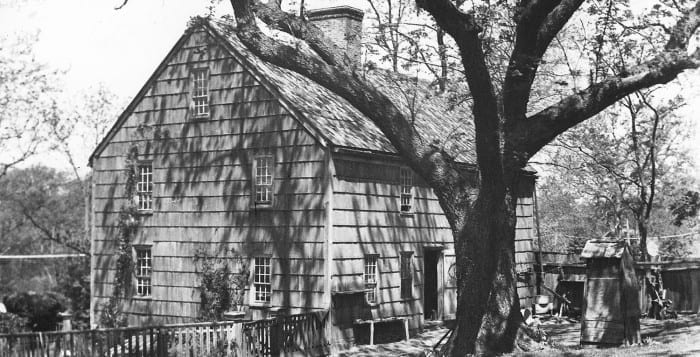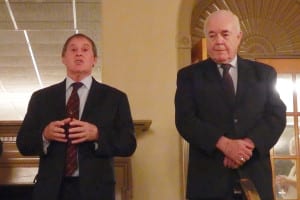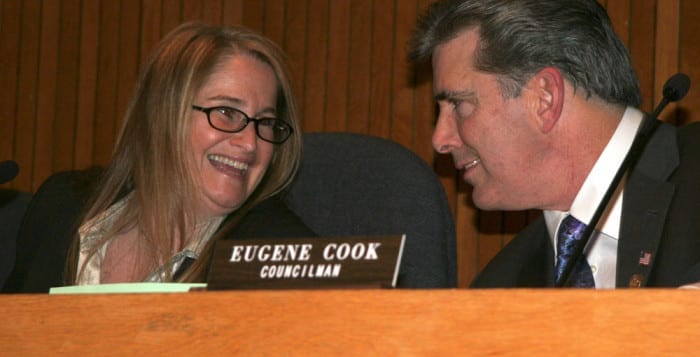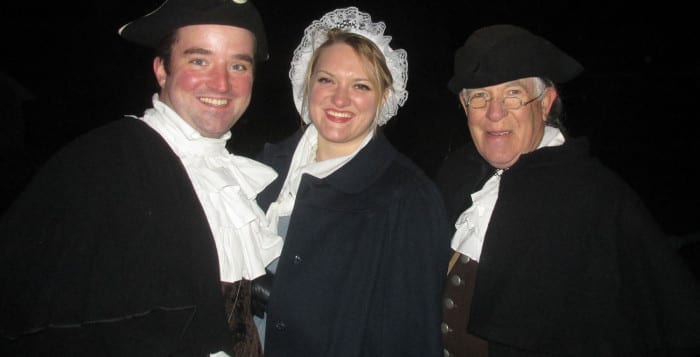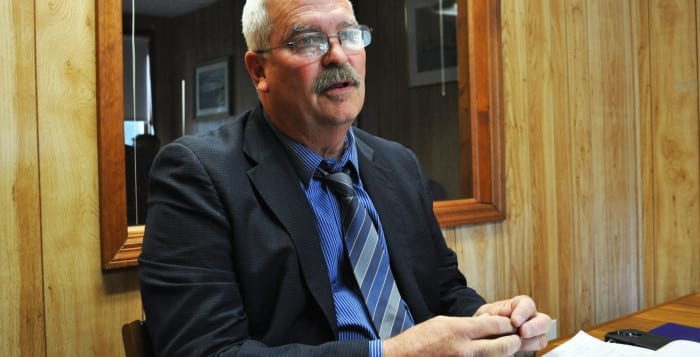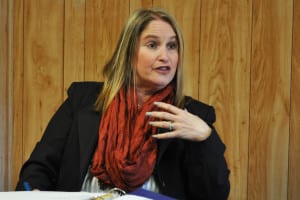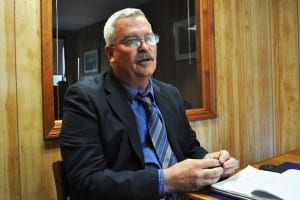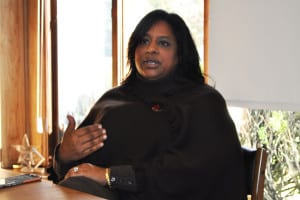By Beverly C. Tyler
One of the most common names connected with the history of the Three Village area is Smith. Records compiled by Leroy and Alvin Smith indicate that there were four Smith families who settled in Setauket in the 17th century.
The first to arrive was Richard “Bull” Smith who came from Southampton in 1656 and who later founded Smithtown, then known as Smithfield, in 1663. The next to settle in Setauket was Arthur Smith, a Quaker, who was admitted as a townsman in December 1659. Arthur had left Southold to avoid further punishment for being a Quaker and evidently found a more receptive and tolerant community in Setauket. He was also probably well known to the men from Southold who had founded Setauket in 1655.
Robert Smith was the next to arrive, coming from Southold in 1667. Robert, who had lived close to Arthur there, was probably a relative but no relationship has been established. Town records indicate that Robert and Arthur lived near each other in Setauket as well. Robert sold his entire estate in October 1682 and left no known descendants.
The fourth Smith to settle in Setauket was Col. William “Tangier” Smith who arrived about 1689. Smith settled on what is now Strong’s Neck and built his home, which he called St. George’s Manor. When his great-granddaughter Anna Smith married Selah Strong, the neck passed to the Strong family (“Three Village Guidebook,” No. 88). In addition to Strong, the descendants of “Tangier” Smith include many other early Three Village families. The colonel and his wife Martha had a total of 13 children but only six are known to have produced future generations. In addition to the Strongs, the family genealogy includes the Woodhulls, Mounts, Brewsters, Hulses and many others including some of the descendants of “Bull” Smith.
Arthur Smith and his wife Martha, who had settled in Setauket in 1659, had four known sons:
• The first, Thomas, was born about 1646 and died about 1685. He was married to Joanna Longbotham of Setauket and had at least one son, Thomas.
• A second son, John, was born before 1649. He had a wife named Rebecca and at least two children, Deborah and John.
• Third son, Benjamin, was born about 1655 and produced one son, Benjamin Jr. Benjamin Sr. is thought to have been the builder of the Smith homestead.
• The fourth son, Arthur Jr., was born sometime before 1659 and had at least three sons: Arthur, Daniel and Samuel.
The majority of the known descendants of Arthur Smith, the Quaker, are descended from his grandson Daniel. Daniel had eight children, four of whom died single. Many of the descendants of Daniel’s other children are still living in the Three Villages.
Daniel married Mary Thompson, daughter of Samuel and Hannah Thompson in 1720. Daniel was Brookhaven Town treasurer in 1733-37 and then town clerk until 1775. Town meetings were held at the Smith home and thus the house was the seat of town government for many years. Daniel died July 31, 1784, and his son Timothy, born Sept. 3, 1730, inherited the homestead (“Three Village Guidebook,” No. 76). Timothy, who married Zurviah Smith, is believed to have lived with his wife and children in the homestead by 1766. During the American Revolution, as detailed by descendant Julia Smith, Timothy outwitted the British — who searched his home many times — by hiding his guns in the foundation of the house and his gold in tobacco leaves.
The Smith homestead has undergone many changes since it was built circa 1685. It was thought to have had a long sloping — or catslide — roof, possibly added about 1705, making it known as a saltbox house. However, the general architecture and timber-frame construction leave many unanswered questions. There is no doubt that the house grew and changed, much as the family grew and changed. It remained the Smith homestead until the last family member in the house died in 1948, a period of continuous occupation for more than 250 years.
Amos, son of Timothy and Zurviah, inherited the farm and homestead when his father died in 1790. His mother continued to live in the house until her death in 1809. As detailed in an old account book, Amos undertook repairs to the house in 1796 and in 1801 “built new end to the house.” It is quite possible that this “new end” was built for the comfort of Amos’ mother Zurviah.
Amos was a successful farmer and served as the Brookhaven Town tax collector in 1805-10. He also served as one of the town constables in 1803-12. Amos was a slaveholder according to “Records of the Town of Brookhaven from 1798 to 1856,” page 91), and a note attached to the family bible that read: “Amos Smith made return that he had a female Child Born of a Slave of his on the 12th Day of March 1803. Childs name is Cloe.” The bible note for March 1824 lists the two children of Cloe, who by then was a freed slave.
In 1810 Amos, age 40, married Ruth Bennett, age 23, and the couple raised four children: Harriet, Isaac, Timothy and Julia Ann. Amos added 40 acres in Stony Brook in 1806 and another 10 acres in 1821; he also held deed to another 40 acres. In 1826, Amos was elected as one of 36 town fence viewers and retained the position until it was incorporated into the jobs of the commissioners of highways in 1830. He died on Christmas Eve 1844, and wife Ruth died July 13, 1852; they are buried in Caroline Church graveyard just west of the entrance walk.
Isaac J. Smith (1813-81), son of Amos and Ruth, was the only child to outlive his parents. He married Sarah Ann Petty (1824-95) in February 1844 and inherited the family homestead after his father’s death. Isaac was a militia captain and the homestead became known as the Major Isaac Smith house. Isaac was an avid horseman and loved to race. As detailed by Miss Kate Strong, Smith was overtaken by a horse and light rig, made a challenge and won the race. He had not realized that he had challenged Robert Bonner, editor of the New York Ledger and a superb horseman. Bonner said, “I could not spoil his fun by beating him, he was having such a good time.”
Isaac and Sarah had, according to family information, as many as fourteen children, a number of whom died young and are buried near their parents in the Caroline Church cemetery. Piecing together family census and church records we can confirm at least 12. The three unmarried children who lived in the homestead well into the 20th century were Emily Sarah (1850-1937), who was known as Aunt Em to her sister’s children; William Lawrence (1865-1938); and Julia Sophia (1863-1948), known as Miss Julia Smith in the community. Julia told many stories about her family and the homestead. A number of these stories were told to Kate Strong, who included them in her “True Tales” written for the Long Island Forum.
As detailed by Arthur Smith descendant Elinore Bryant, about 1990, there were papers and deeds found in the house along with notes and articles written by Julia Smith; an old account book found in the attic; the Brookhaven tax book of 1806; and a paper fastened to the family bible describing the birth of family slaves. These are all, hopefully, still in possession of family members. Bryant wrote that there were “many beautiful pieces of 17th- and 18th-century furniture … still in use when Miss Julia Smith occupied the house.” She also noted that when the house was sold in 1948, many of Daniel Smith’s tools — “(he) was a cordwainer (shoemaker) by trade” — were still in the shed.
Today the Smith homestead, a community treasure, is being lovingly and carefully restored. Sections of the house reflect the different family needs that occurred as each generation of Smiths added to the home and changed it. Many of these alterations now present a somewhat confusing array of disparate modifications, all of which make understanding the history of the house more interesting and challenging. However, most of the major changes to the house occurred during the first two centuries of its existence. As a result the house, as a home, reflects in many ways the lifestyle of the colonial period.
As Bryant wrote, “To cross the threshold over the old mill stone, was to enter another world. The old floorboards glow in the kitchen with the patina of three centuries, while beneath the wide-throated chimney huge black kettles and utensils hang on the crane, a reminder of the daily chores of the colonial housewife.”
Beverly Tyler is the Three Village Historical Society historian.

